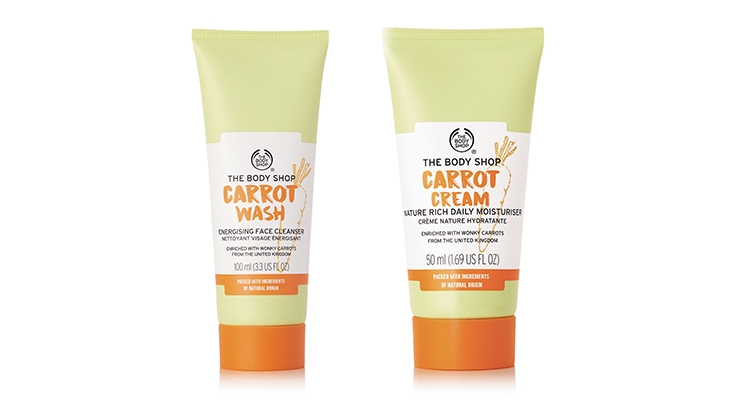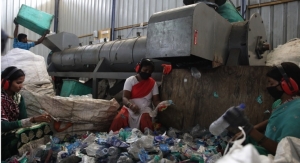06.13.19
In its latest collection, The Body Shop (owned by Natura & Co.) showcases the brand’s mission to “launch products with purpose,” utilizing "ugly" carrots that may be discarded due to their appearance, but are still 100% rich in nutrients. In this way, the line helps to eliminate “the waste epidemic,” in which more than $160 billion in food a year is discarded in the U.S., and over half of the discarded food is fresh produce that’s perceived as “ugly.”
This vegan Carrot Collection—Carrot Facial Wash ($17) and Carrot Cream ($20)—are enriched with organic carrots that are deemed unsaleable in supermarkets. Still rich in antioxidants, these misfit carrots are sourced from a British, family-run farm. In addition, the duo comes in 100% recyclable packaging made from 55% recycled plastic.
The products are also enriched with Community Trade organic aloe vera sustainably sourced from farmers in Campeche, Mexico. Grown on organically certified land close to three precious rainforest biosphere reserves, the aloe leaves are harvested and filleted by hand within 6 hours to help preserve their freshness and ensure the highest quality.
This vegan Carrot Collection—Carrot Facial Wash ($17) and Carrot Cream ($20)—are enriched with organic carrots that are deemed unsaleable in supermarkets. Still rich in antioxidants, these misfit carrots are sourced from a British, family-run farm. In addition, the duo comes in 100% recyclable packaging made from 55% recycled plastic.
The products are also enriched with Community Trade organic aloe vera sustainably sourced from farmers in Campeche, Mexico. Grown on organically certified land close to three precious rainforest biosphere reserves, the aloe leaves are harvested and filleted by hand within 6 hours to help preserve their freshness and ensure the highest quality.
Since 2015, trade with The Body Shop has helped support the indigenous female farmers living on the edge of these rainforests who could face discrimination and limited work opportunities. Earning a sustainable income from aloe farming also protects forestland by reducing the need to chop down trees and compromise local resources.


























